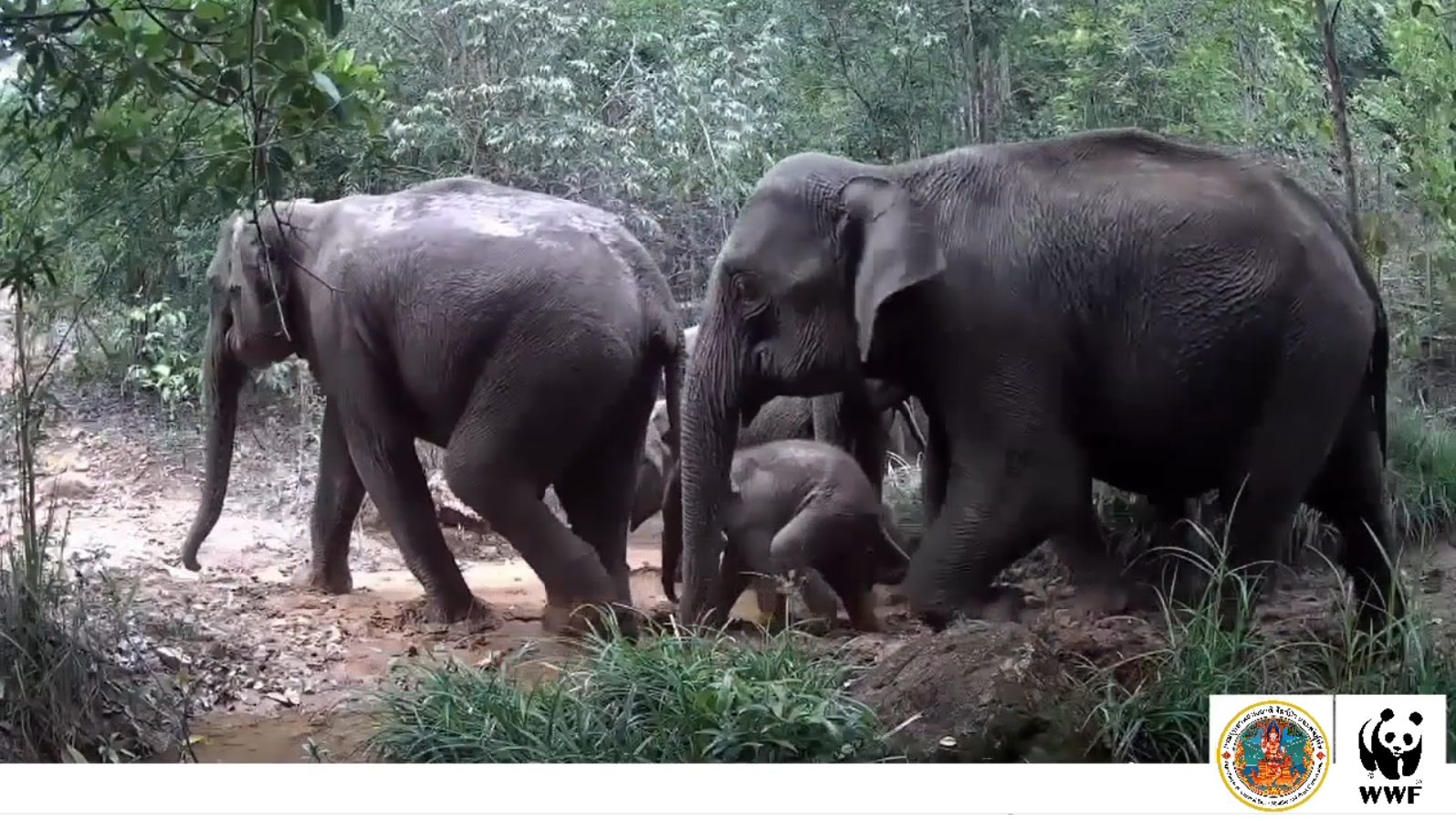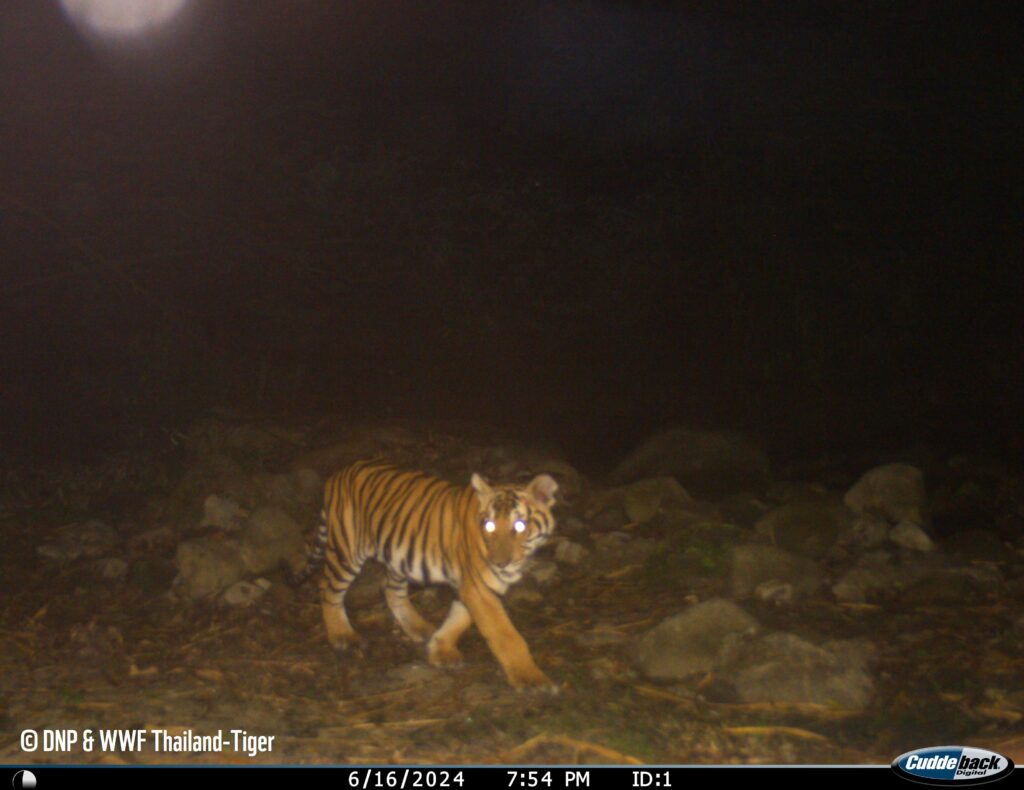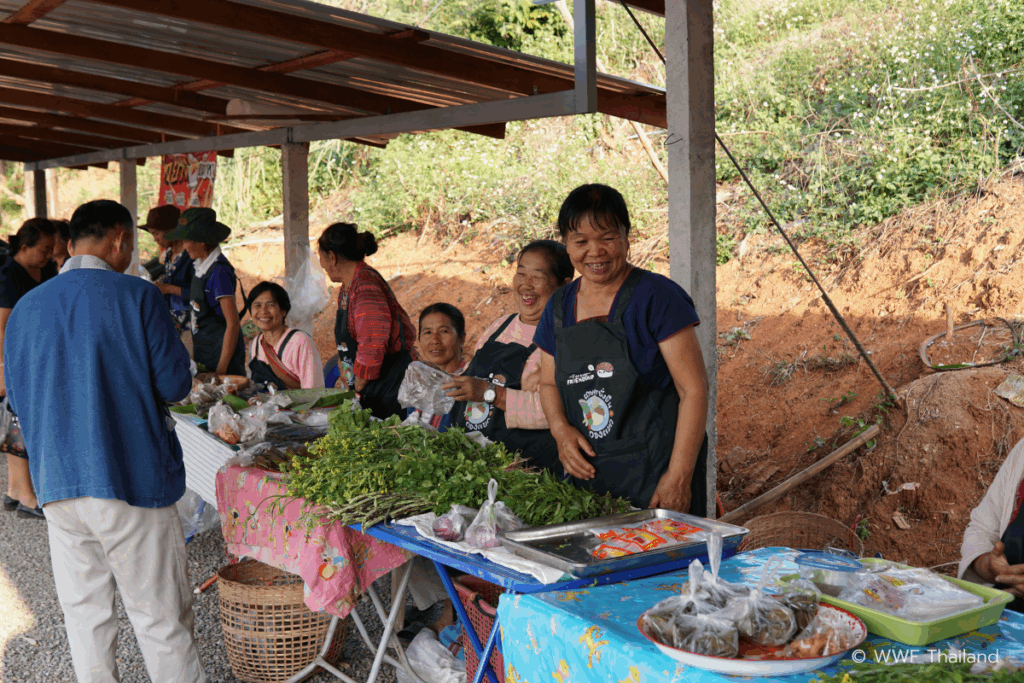Community and nature unite to protect Thailand’s Natural World Heritage
A new light of hope is shining through the wildlife habitat of Thap Lan National Park, a strategic area in Nadi District, Prachinburi Province, where camera trap footage has revealed wildlife thriving in a restored habitat. This area, located within the core zone of Thailand’s second Natural World Heritage site, is now becoming a symbol of progress in addressing human-wildlife conflict.
Wildlife has been spotted in an area that has undergone significant habitat restoration, particularly in improving the availability of natural food and water sources. The area also hosts controlled burns, a fire prevention technique to reduce the risk of destructive forest fires during the dry season. These controlled burns not only protect the forest but also help restore grasslands, providing wildlife with food while managing parasites that can harm their health.
The positive presence of wildlife in this Wildlife Recovery Area reflects the positive implementation of strategic efforts to address human-wildlife conflict. This work is being led by Thap Lan National Park under the HWC C2C (Human-Wildlife Conflict to Coexistence) management approach. The initiative focuses on transforming conflict into peaceful coexistence through community involvement and adaptive management practices, aimed at restoring ecosystem balance.
Since March 2024, WWF Thailand has been a core partner in driving the C2C strategy on the ground. Alongside governmental, INGOs, local NGOs, private sector, and civil society partners, local communities surrounding Thap Lan National Park across four districts in Prachinburi and Nakhon Ratchasima have played a crucial role in helping achieve the shared goal of “Safeguarding Wildlife & Humans”.
When nature recovers, humanity thrives.
Together, we are building a peaceful future where people and wildlife can coexist harmoniously.





